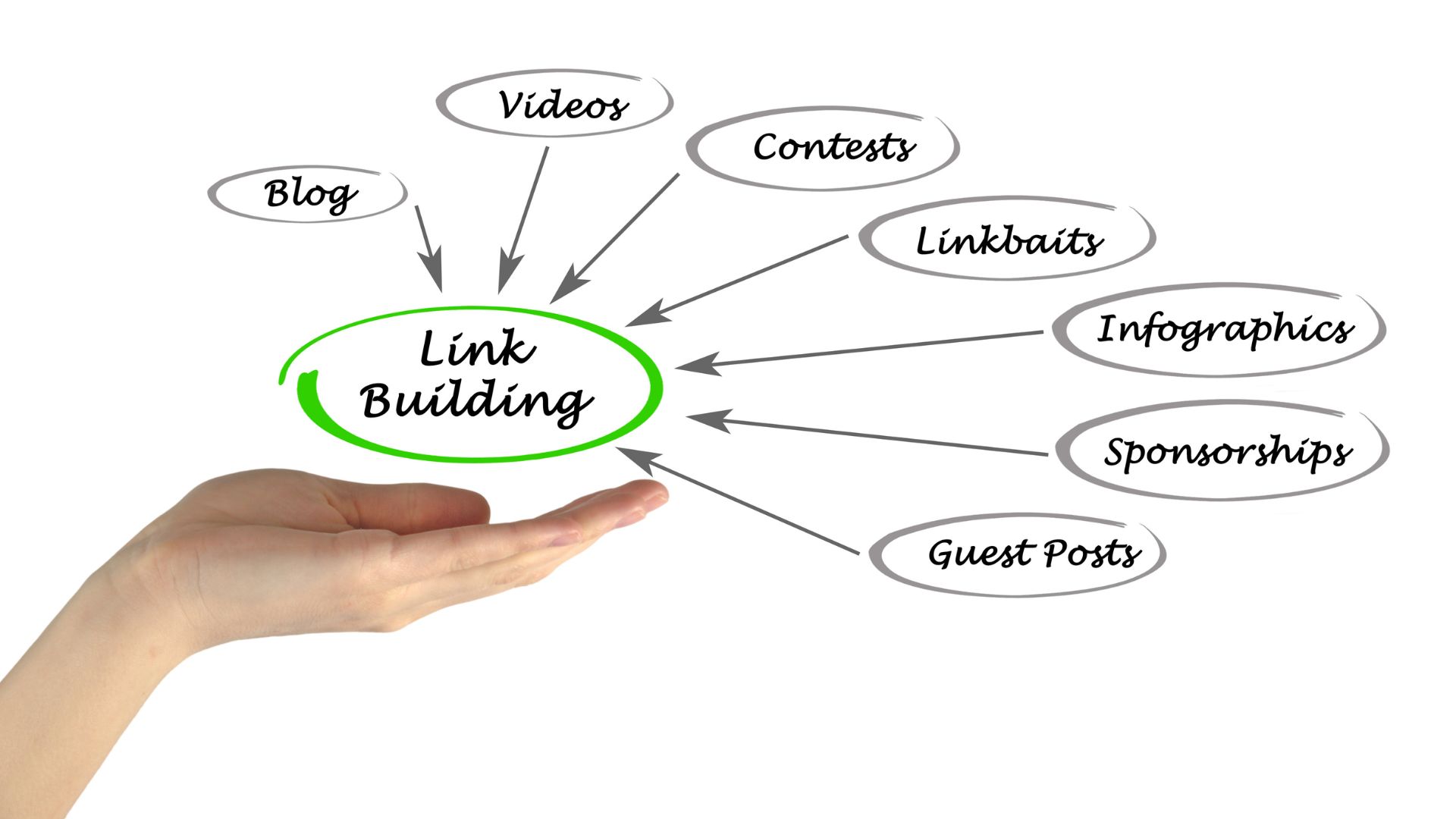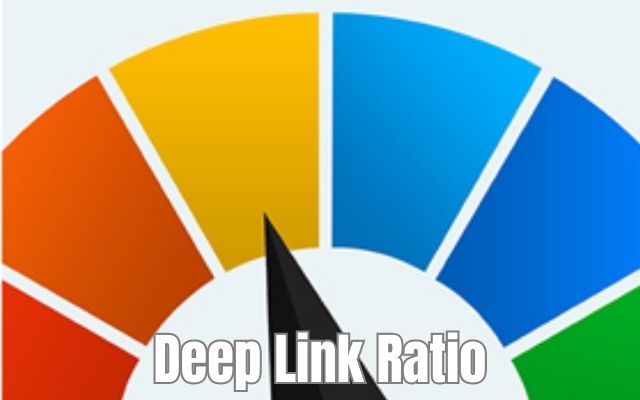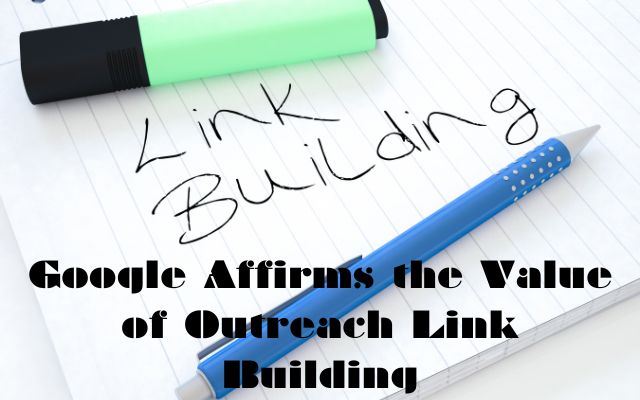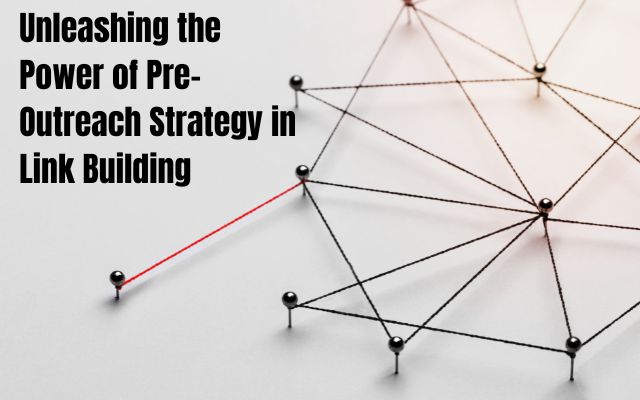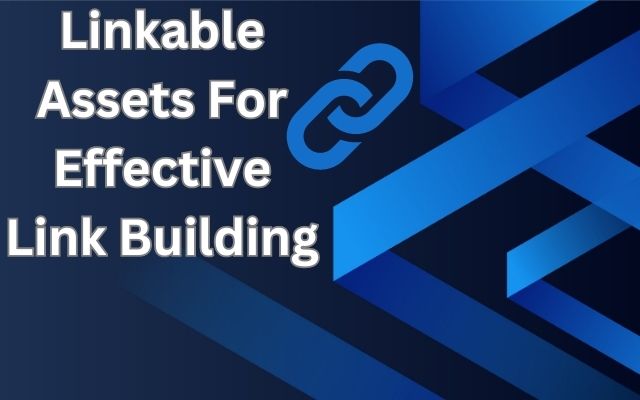18 Popular Link Building Tactics You Should Avoid
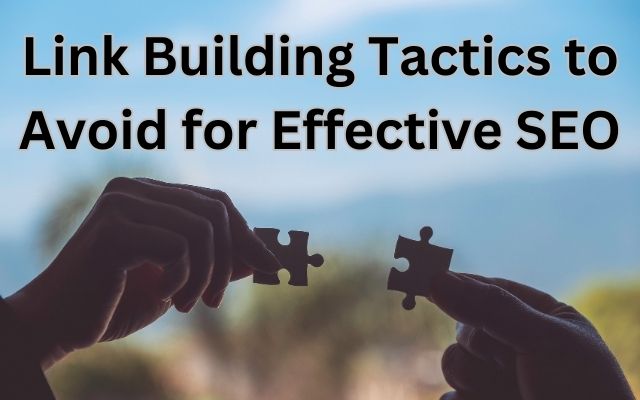
It’s crucial for website owners and SEO practitioners to be aware of the 18 link building tactics to avoid in order to safeguard their online reputation and maintain effective SEO strategies.
Link building is an essential aspect of search engine optimization (SEO) that aims to improve a website’s visibility and organic rankings. While link building can be an effective strategy, it is important to approach it with caution and adhere to ethical practices. In this article, we will explore 18 popular link building tactics that should be avoided due to their potential negative impact on your website’s SEO efforts.
Link Building Tactics to Avoid for Effective SEO
- Purchasing Links: Buying links from low-quality or spammy websites can lead to severe penalties from search engines. Instead, focus on earning links naturally through valuable content and genuine relationships.
- Participating in Link Farms: Link farms are networks of websites created solely for link exchange purposes. Search engines consider such practices manipulative, and participating in them can harm your website’s credibility.
- Excessive Guest Posting: Guest posting can be a legitimate tactic if done correctly. However, excessively posting on irrelevant or low-quality websites solely for link building purposes is not recommended.
- Article Spinning: Article spinning involves using software to generate multiple versions of the same article by replacing words or phrases. This practice produces low-quality content that offers little value to readers and can lead to penalties.
- Link Exchanges: Reciprocal link exchanges, where two websites agree to link to each other, used to be common. However, search engines now view excessive link exchanges as manipulative and may penalize involved websites.
- Irrelevant Directory Submissions: Submitting your website to irrelevant or low-quality directories solely for the purpose of gaining backlinks is ineffective and can negatively impact your SEO efforts. Focus on reputable directories that are relevant to your niche.
- Hidden or Paid Links: Hiding links within the content or using deceptive methods to camouflage paid links is a violation of search engine guidelines. This tactic can lead to penalties and damage your website’s reputation.
- Link Schemes: Engaging in link schemes such as link wheels or pyramid schemes, can result in severe penalties from search engines. These practices aim to manipulate search rankings and are against ethical guidelines.
- Low-Quality Press Releases: Distributing press releases on irrelevant or low-quality platforms for the sole purpose of gaining backlinks is not an effective strategy. Focus on creating high-quality press releases that provide valuable information.
- Private Blog Networks (PBNs): PBNs involve creating a network of interlinked websites to manipulate search rankings. Search engines are increasingly adept at identifying PBNs, and getting caught can have severe consequences.
- Excessive Forum Commenting: Posting numerous comments on forums with irrelevant or spammy links can harm your website’s reputation and credibility. Instead, engage in meaningful discussions and provide value to the community.
- Automated Link Building Software: Using automated software for link building purposes often results in low-quality links from irrelevant websites. Manual link building efforts yield better results and help maintain control over the quality of your backlinks.
- Comment Spamming: Posting generic or irrelevant comments on blogs solely for the purpose of gaining backlinks is a frowned-upon practice. Genuine engagement and adding value to the discussion are more valuable for your website’s reputation.
- Link Wheels: Link wheels involve creating a circular pattern of interlinked websites to manipulate search rankings. Search engines have become more adept at detecting these patterns, making them an ineffective and risky strategy.
- Exact Match Anchor Text Overuse: Using exact match anchor text excessively in your backlink profile can appear unnatural to search engines. Instead, focus on using varied and natural anchor text to improve the credibility of your links.
- Low-Quality Social Bookmarking: Submitting your website to low-quality social bookmarking sites can lead to spammy backlinks. Instead, focus on reputable bookmarking platforms and engage in genuine social sharing.
- Paid Blog Reviews: Paying for positive reviews with embedded links can be seen as a deceptive practice and is not recommended. Genuine, unbiased reviews hold more value and can attract natural backlinks.
- Duplicate Content Syndication: Syndicating duplicate content across multiple websites can dilute your website’s authority and impact its organic rankings. Focus on creating unique and valuable content that encourages natural link sharing.
- 12 Great Link Building Tools That Are Essential To Your Success
- Coupon Link Building for Ecommerce: A Step-by-Step Guide
- Understanding Internal Linking for SEO
- Building Stronger Connections: A Comprehensive Guide to Resource Link Building Strategies
- Unlocking the Power of Guest Blogging: Strategies and Tips for Building Your Online Presence
- The Art of Link Building: Strategies and Techniques for Success
- Reaching New Heights: A Comprehensive Guide to the Skyscraper Technique in Link Building
- Rebuilding the Chain: An In-Depth Guide to Broken Link Building for Improved SEO
- Dark Side of Link Building: Protect Your Rankings and Maximize Your SEO Success
- Shallow Link Building: Boosting Your Website’s Authority and Visibility
- Can Link Building Give You or Your Client a Bad Reputation?
Conclusion:
When it comes to link building, it is crucial to prioritize quality over quantity and adhere to ethical practices. Avoiding the tactics mentioned above will help protect your website from penalties, maintain its credibility, and improve your SEO efforts in the long run. Focus on creating valuable content, building genuine relationships, and earning high-quality backlinks to establish a strong and authoritative online presence.


